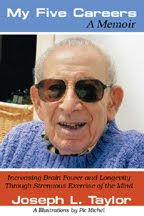The many scholarly books on the subject describe the newcomers to America as “waves of immigrants and “hordes of New Americans;” refer to their habitats on the Lower East Side of Manhattan as “tenements” and “railroad chain cold water flats”. The streets were described as teeming with “rickety pushcarts’ and their goods for sale; and filled with children at play, dodging pedestrians and street vehicles, shrieking with joy while putting pedestrians at risk. amidst the squalor, this iconic site is also home to one of the great stories of/in the growth of America. The years were the last quarter of the 1800’s –1915. Except for the novels and short stories about the lives of immigrants, the sociological treatises fail to convey an understanding of these flesh-and-blood people. Let me tell you about a small community of Jewish men in Wilkes-Barre, PA, many from Russia, Poland, and Romania, as I knew them during the years 1927-1935.
First, the common part. These men were tradesmen – bakers, butchers, grocers, peddlers in the commodity-starved rural countryside, small shopkeepers, salesmen. The men made a living for their families, some quite successfully, and blended smoothly into the general life of the city. They were mostly Socialists, victims of cruel, anti-Semitic programs, and without exception were virulently anti-Communist. They voted routinely but futilely in presidential elections for Norman Thomas; and most important for this piece I am writing, they were all members of the Workmen’s Circle, an organization, as the name clearly denotes, for the working man. The Workmen’s Circle had a substantial building of its own on “The Hill” in Wilkes-Barre, called “The Lyceum,” that served as a forum on social and political issues, and as a cultural center for the continuity of Jewish life.
A group of perhaps twenty-five men met every Sunday morning for lox and bagels, and for discussions. My father and his younger brother, Israel, were as close and affectionately attached as any brothers I have known. We visited Israel and his family several times a year and each Sunday my father, with me in tow, attended the morning meetings at the Lyceum. Some members dressed in suits, others in sweaters. Of the many intriguing experiences I had at these gatherings, the one I remember most is the weekly “redde” session, the Yiddish word for speakers and speech-makers, -- everyone spoke Yiddish -- and the subsequent discussions.
Now for the eloquence. These ‘tradesmen” spoke fluidly, colorfully, to the point, with an aggressive intelligence and thorough understanding of the issues on tap that day, political and cultural, from current legislation to literature. Each man seemed to live for these Sunday mornings. They knew it, and put a zest into the proceedings that was infectious. I was amazed. Each man had some schooling in their homeland, some less some more, but they were avid readers of the newspapers and journals -- Yiddish and English. The bond among them and the respect they had for each other was moving. In common, they had survived successfully, first in their flight to America, and then in becoming Americanized and acquiring citizenship. Israel spoke one Sunday about his escape from Lithuania, a real thriller (discussed at length in my book). Every man had a story. At the time I knew these men they were in the prime years of life. I often wonder, with gratitude for what they taught me, how the remainder of their lives turned out.
More later, Joe


No comments:
Post a Comment